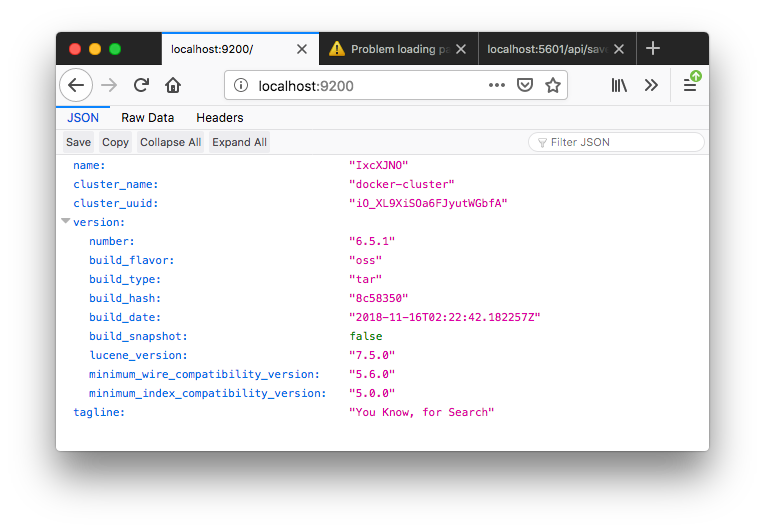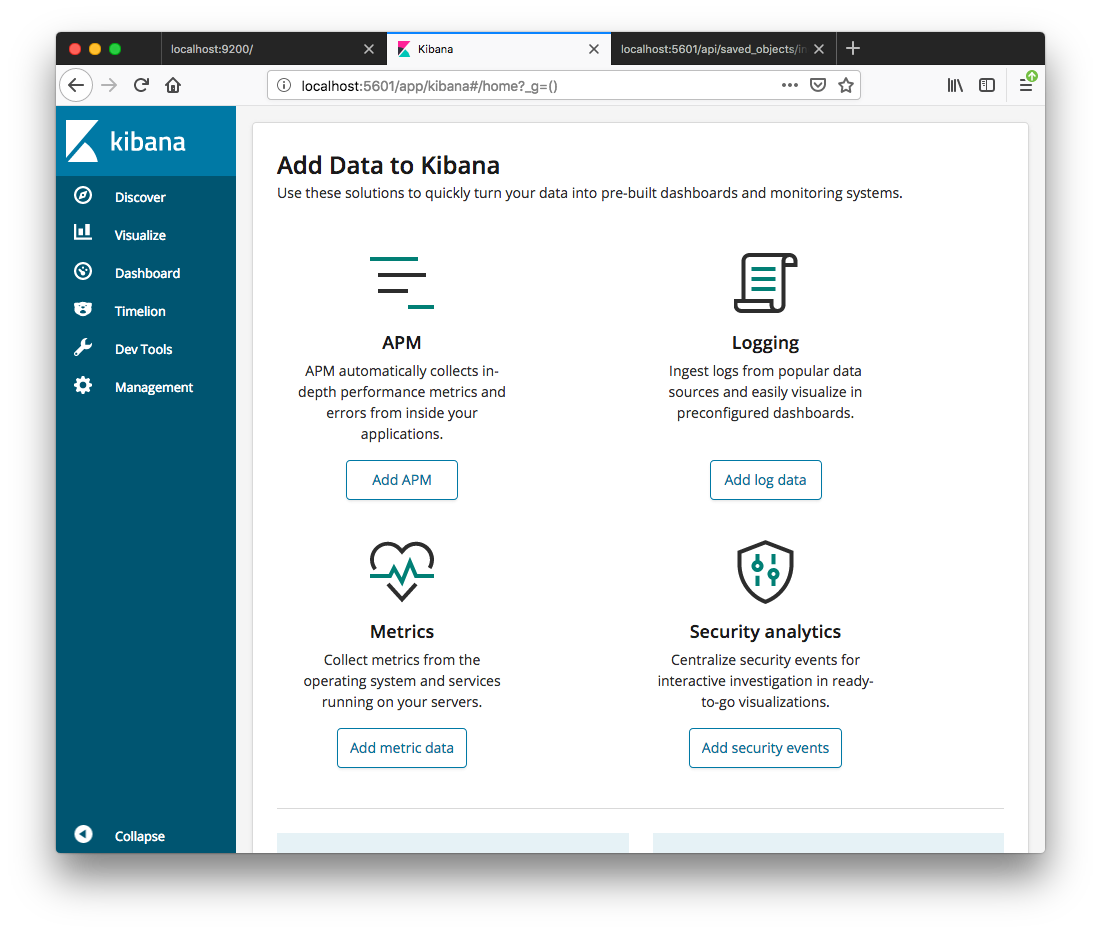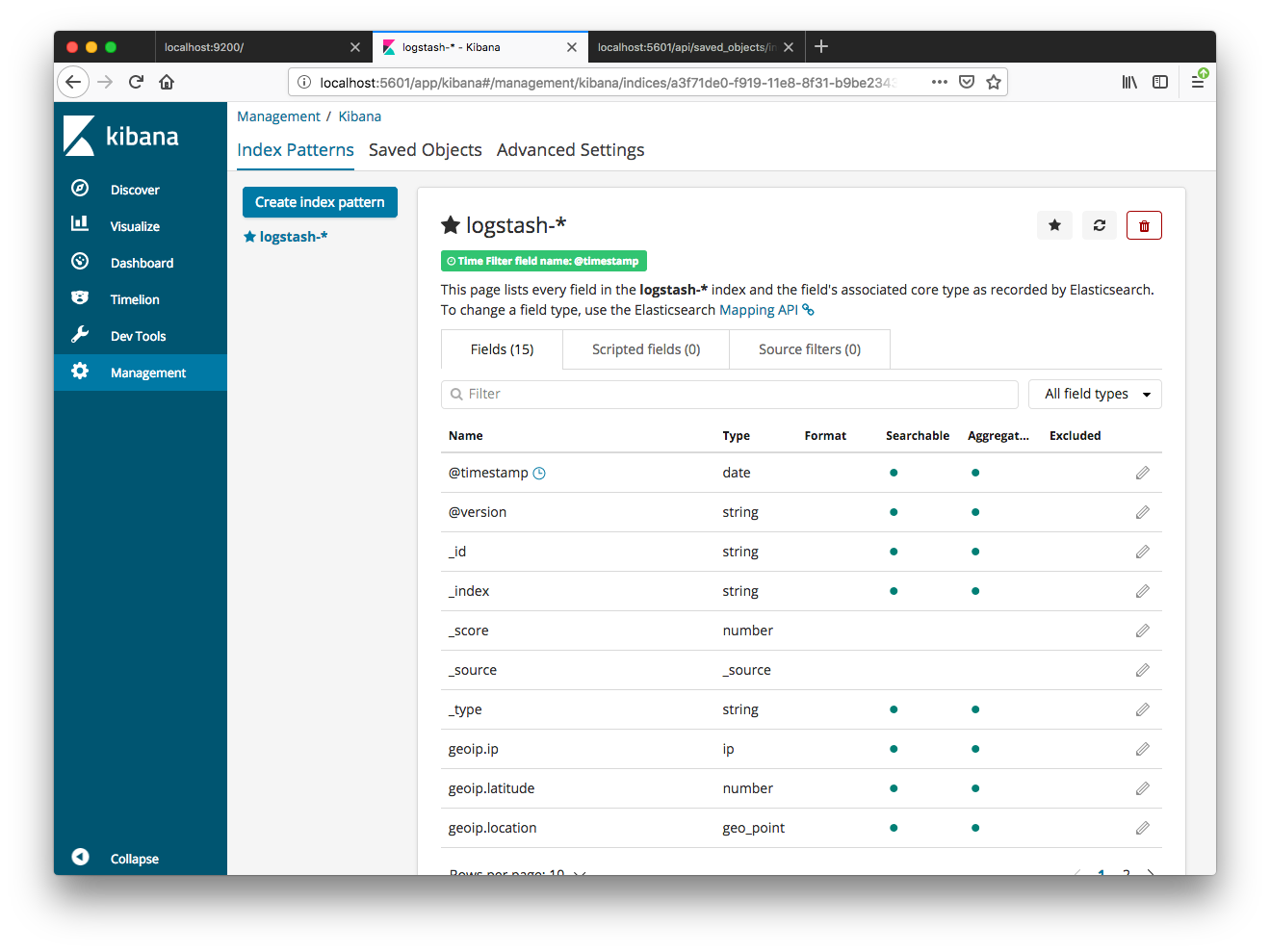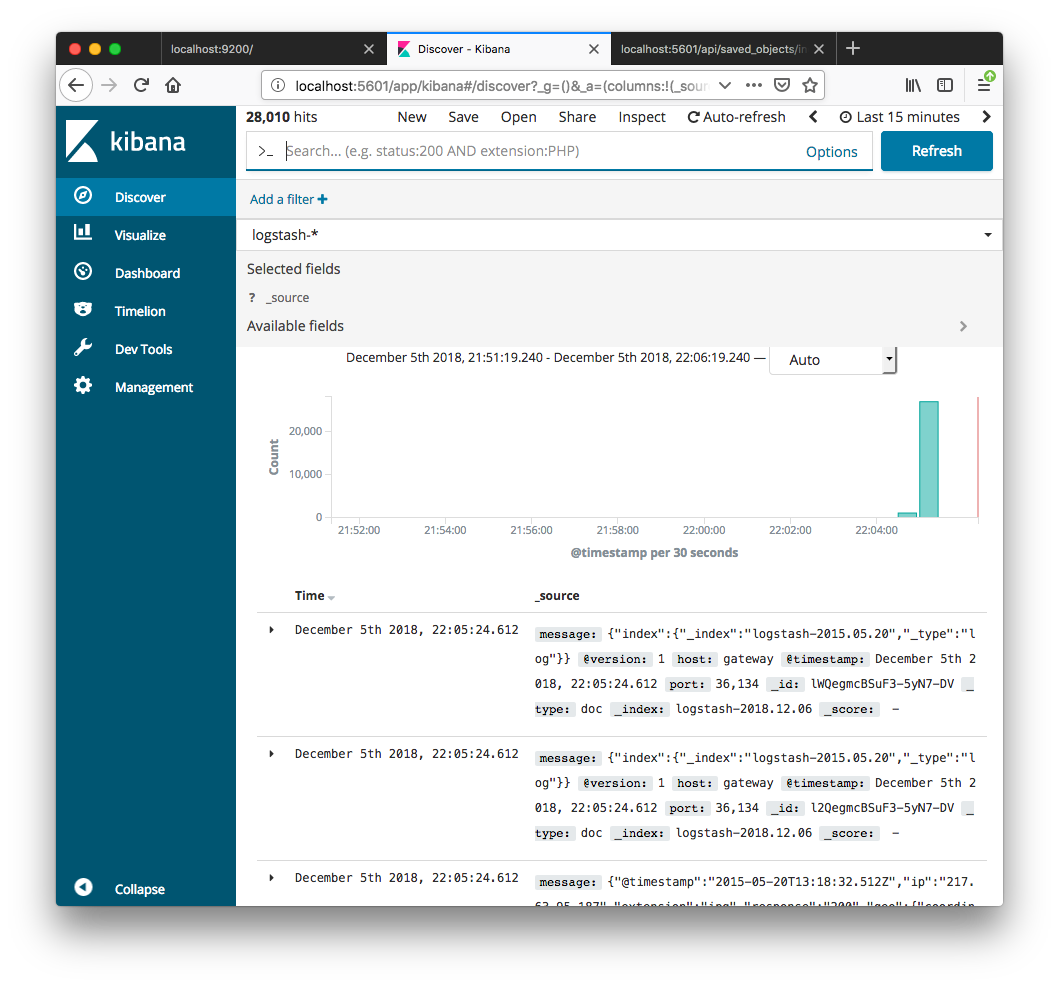DOCKER ELK : ELASTICSEARCH, LOGSTASH, AND KIBANA 2020
Note: though still valid, this page is out of date.
So, for the latest Elastic stack, please check out
Docker - ELK 7.6 : Logstash on Centos 7
or
Docker - ELK 7.6 : Elastic Stack with Docker Compose.
There are couple of ways to install the ELK stack with Docker. We can either pull ELK's individual images and run the containers separately or use Docker Compose to build the images and run the containers.
In this post, we'll run docker-compose.
Let's get the source (v6.5.1) from docker-elk.
First, clone the repo:
$ git clone https://github.com/Einsteinish/docker-elk.git
Then, run "docker-compose":
$ cd docker-elk $ docker-compose up
$ docker ps
CONTAINER ID IMAGE COMMAND CREATED STATUS PORTS NAMES
8725fe1f9573 docker-elk_kibana "/usr/local/bin/kiba…" 24 minutes ago Up 24 minutes 0.0.0.0:5601->5601/tcp docker-elk_kibana_1
70f32a7e1c13 docker-elk_logstash "/usr/local/bin/dock…" 24 minutes ago Up 24 minutes 5044/tcp, 0.0.0.0:5000->5000/tcp, 9600/tcp docker-elk_logstash_1
01a2ef381ad6 docker-elk_elasticsearch "/usr/local/bin/dock…" 24 minutes ago Up 24 minutes 0.0.0.0:9200->9200/tcp, 0.0.0.0:9300->9300/tcp docker-elk_elasticsearch_1
$ lsof -PiTCP -sTCP:LISTEN
COMMAND PID USER FD TYPE DEVICE SIZE/OFF NODE NAME
...
com.docke 6330 kihyuckhong 18u IPv4 0x38d0f1345a99050d 0t0 TCP *:9300 (LISTEN)
com.docke 6330 kihyuckhong 21u IPv6 0x38d0f1344efc8805 0t0 TCP localhost:9300 (LISTEN)
com.docke 6330 kihyuckhong 22u IPv4 0x38d0f1345a33abad 0t0 TCP *:9200 (LISTEN)
com.docke 6330 kihyuckhong 23u IPv6 0x38d0f1344efcc185 0t0 TCP localhost:9200 (LISTEN)
com.docke 6330 kihyuckhong 24u IPv4 0x38d0f1345de7312d 0t0 TCP *:5000 (LISTEN)
com.docke 6330 kihyuckhong 25u IPv6 0x38d0f1344efcbbc5 0t0 TCP localhost:5000 (LISTEN)
com.docke 6330 kihyuckhong 26u IPv4 0x38d0f1345eebbe6d 0t0 TCP *:5601 (LISTEN)
...
By default, the stack exposes the following ports:
- 5000: Logstash will listen for any TCP input on port 5000
- 9200: Elasticsearch for HTTP REST API
- 9300: Elasticsearch TCP nodes communication
- 5601: Kibana web UI


Kibana has its own API for saved objects, including Index Patterns. The following examples are for an Index Pattern with an ID of logstash-*.
$ curl -XPOST -D- 'http://localhost:5601/api/saved_objects/index-pattern' \
-H 'Content-Type: application/json' \
-H 'kbn-version: 6.5.1' \
-d '{"attributes":{"title":"logstash-*","timeFieldName":"@timestamp"}}'
HTTP/1.1 200 OK
kbn-name: kibana
content-type: application/json; charset=utf-8
cache-control: no-cache
content-length: 185
connection: close
Date: Thu, 06 Dec 2018 05:41:55 GMT
{"type":"index-pattern","id":"a3f71de0-f919-11e8-8f31-b9be2343e938","attributes":{"title":"logstash-*","timeFieldName":"@timestamp"},"updated_at":"2018-12-06T05:41:55.517Z","version":1}

Let's get a sample log file (logs.jsonl.gz) from Kibana User Guide [6.5] => Getting Started => Building your own dashboard => Loading sample data.
Now we can send our Log file through nc command directly to ElasticSearch:
$ gunzip logs.jsonl.gz $ cat logs.jsonl | nc localhost 5000
Now we can see the logs hitting on Kibana:

Tidak ada komentar:
Posting Komentar